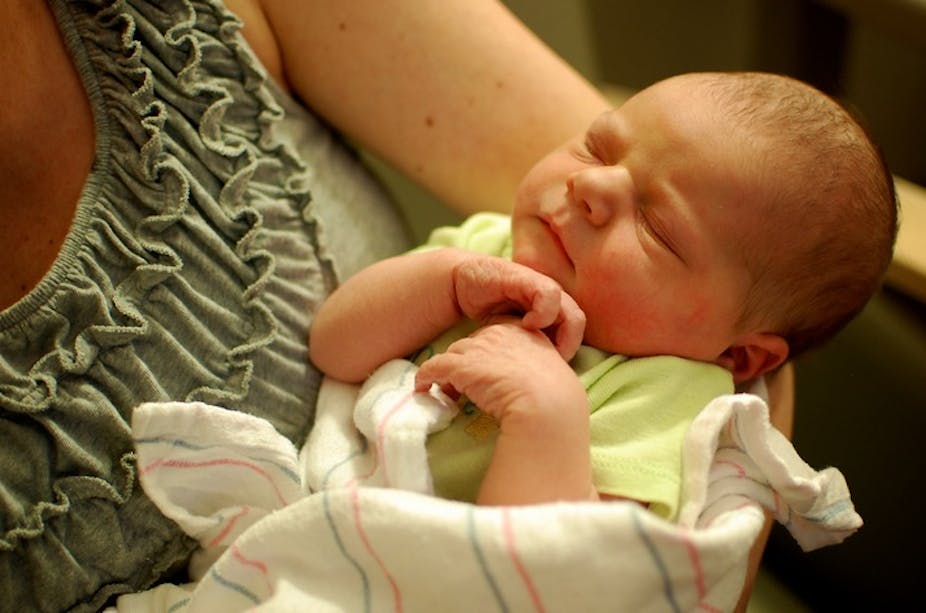The types of bacteria that colonise an infant’s developing gut are influenced more by internal development than childbirth or early nutrition, according to a study published today in the journal PNAS.
Intestinal bacteria, also known as the microbiome, is vital for good health throughout life because it affects everything from daily digestion to the long-term functioning of our immune systems.
But little is understood about how the gut of a newborn infant transitions from being sterile to becoming densely inhabited with bacteria.
Researchers from the Washington University School of Medicine discovered these bacterial communities, which assemble within the gut just weeks after birth, colonise in distinct, patterned progressions.
Their finding suggested abrupt shifts in the different types of gut bacteria were closely associated with the infant’s developmental stage.
Neurogastroenterology expert and senior lecturer at RMIT Paul Bertrand said he thought early gut bacteria would change with the environment and was surprised to see the level of change purely associated with gut development.
“I think this study is significant because it highlights that the gut has an active role in choosing the sorts of bacteria that live there. It’s not just a passive progression as you fill up with bacteria,” Bertrand said.
“It seems more likely there is an overall plan that, as the immune system in the gut develops, the bacteria are encouraged to either establish themselves or fade away. I think the study is very useful because it gives people a better understanding of how the gut is managing colonies of bacteria.”
Cheryl Power from the University of Melbourne’s Department of Microbiology and Immunology described the microbiome as the collection of microorganisms that live both in and on the human body, made up of thousands of strains of bacteria.
While we do not benefit directly from the activities of some microbes in our gut, others are extremely helpful because they provide important vitamins, discourage colonisation by disease-producing or pathogenic bacteria and play an important role in the development of the immune system, she said.
“I think we’ve grossly underestimated the importance of the bugs that live in and on us, and regard them all as nasty germs when in fact we’re discovering they have hugely important functions,” she said.
“We already know there is a relationship between our microbiome and our immune system. It’s just a matter of now of looking at how early this interaction between the two systems starts.”

